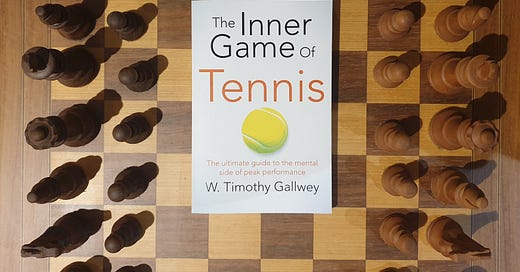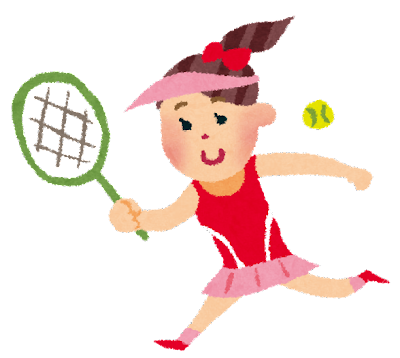3 Lessons From Wimbledon
Applying Markéta Vondroušová and Carlos Alcaraz's mindsets to your chess
Chessplayers could learn from tennis players’ thoughts on how they successfully tackled the biggest matches of their careers, on the mental side.
This is the thought I had as I watched interviews with Markéta Vondroušová and Carlos Alcaraz, the respective Wimbledon Women’s and Men’s champions crowned over the weekend.
1. Enjoy the moment
Vondroušová had reached the French Open finals in 2019, but lost to Ashleigh Barty 1–6 3–6. When asked if that experience helped her this time:
I was 19 the first time so I just remember it was such a stress, I just wanted to do well and it was a big thing in Czech, everybody was talking about it and I think she just crushed me, it was a very fast match and I didn’t even enjoy it. I was very sad after and I just told myself, if this happens again, you have to enjoy every moment, even if I lose I just have to enjoy and I think even if I lost today I would just enjoy this moment and such a big achievement. I just really enjoyed this match today.
I’ve also found that my best performances in chess have come when I didn’t have particular expectations or pressure to do well and was really enjoying the chess and just being at the tournament—a good mix of feeling relaxed and not being worried about the results, but being fully concentrated at the board.
As Brad Stulberg and Steve Magness write in their book, Peak Performance (2017),
It is important to realise the impact mood plays on performance.
Your mental state preceding a performance can considerably affect it.
You can improve performance by priming yourself into a positive mood prior to important work that involves problem solving and creative thinking.
2. Be proud of yourself
Alcaraz, the world #1 at 20 years of age, faced Novak Djokovic in the semi-finals of the French Open this year. He struggled with his nerves and the tension of the match, and cramping up from the end of the second set, bowed out 3–6 7–5 1–6 1–6.
Just 5 weeks later, he overcame Djokovic in the Wimbledon final 1–6 7–6 6–1 3–6 6–4 and said this in his post-match, on-court interview:
Well it’s a dream come true for me, of course it’s great to win, but even if I would have lost, I would be really proud of myself in this amazing run, making history in this beautiful tournament, playing a final against a legend of our sport. For me it’s incredible, it’s a dream come true that I was able to play on this stage, for a boy of 20 it’s amazing, I didn’t expect to reach this kind of situation really fast, I’m really really proud of myself, the team that I have, the work we put in every day to be able to live this experience.
Notice some of the overlap with Vondroušová’s comments (“even if I lost…”)?
Remember to be proud of yourself for what you’ve achieved to get to where you are. Wherever you stand, success can fade in the memory, and you might feel like you won’t be satisfied unless you get to the next level—but it’s better to feel good about yourself and your abilities before a game. Compile a collection of your best games you can play through to remind yourself what you’re capable of—especially helpful in bad times, such as when you’re going through a bad tournament.
3. Work on your mental game
When asked in the press conference about how he improved things from the French Open, Alcaraz explained:
I am a totally different player from the French Open, I grew up a lot from that moment, I learnt a lot from that moment. Before the final I took a lesson from that match and did something different, I prepared a little bit differently mentally and could deal with the pressure, the nerves better than I did in French Open. […] I was really happy to be able to stay there—didn’t get down, didn’t give up, and I fought until the last ball, every ball, I think we made great rallies, great points, it was a long match, long sets and I think it was the mental part that allowed me to stay there during the 5 sets.
Even if you’ve played chess for many years, it’s normal to have glaring deficiencies in your mental game. There aren’t many resources out there that discuss, let alone work on these skills specifically for chess, and from my own experience, not many people actively work on this aspect of their game at all. It’s easier to work with the elements of the chequered universe on the table in front of you, rather than the one inside you.
The first step is to think about how the mental side affects your chess performance.
Are there any common denominators in the tournaments you’ve done well at?
What are the ways in which your game suffers because of your inner demons?
What are some strategies you could implement at your next tournament, and from now until then?
The difference between being concerned about winning and being concerned about making the effort to win may seem subtle, but in the effect there is a great difference. When I’m concerned only about winning, I’m caring about something that I can’t wholly control. Whether I win or lose the external game is a result of my opponent’s skill and effort as well as my own. When one is emotionally attached to results that they can’t control, they tend to become anxious and then try too hard. But one can control the effort they puts into winning. One can always do the best they can at any given moment. Since it is impossible to feel anxiety about an event that one can control, the mere awareness that you are using maximum effort to win each point will carry you past the problem of anxiety. As a result, the energy which would otherwise have gone into the anxiety and its consequences can then be utilised in one’s effort to win the point. In this way one’s chances of winning the outer game are maximised.
—W. Timothy Gallwey, The Inner Game of Tennis








Great post, Junta! What really struck me about the epic Alcaraz-Djokovic Wimbledon match was the fearlessness of the shots Alcaraz showcased in the 5th set (In the first set too, but they were less effective then!) In the biggest moment, on the biggest stage Alcarez played with a stunning lack of inhibition. There are definitely parallels in chess as well, as when we play higher rated players we want to keep it "safe," but your chances of winning are actually better if you play without fear. (A point highlighted by GM Smerdon when I interviewed him, among many others). Keep up the great work Junta!
As someone who feels my current hurdles in chess are as much mental as chess-related, I appreciate that you bring in viewpoints outside of chess, such as in the performance literature. Magnus and Stulberg are great - I know them from the context of running. (You've made me want to re-read the book). Avetik Grigorian at ChessMood did an interview with Todd Herman on using an alter ego to work on the mental game. I thought it was quite interesting.